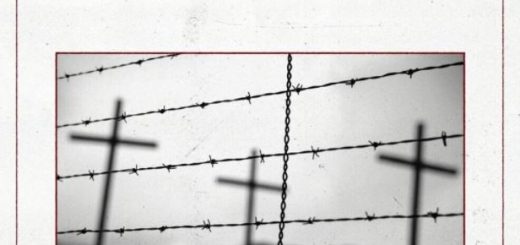Halloween by Phoebe Bridgers Lyrics Meaning – Unmasking the Veil of Festivity and Despair
Lyrics
The sirens go all night
I used to joke that if they woke you up
Somebody better be dying
Sick of the questions I keep asking you
That make you live in the past
But I can count on you to tell me the truth
When you’ve been drinking and you’re wearing a mask
Baby, it’s Halloween
And we can be anything
Oh, come on, man
We can be anything
Always surprised by what I’d do for love
Some things I’d never expect
They killed a fan down by the stadium
Was only visiting, they beat him to death
Baby, it’s Halloween
And we can be anything
Oh, come on, man
We can be anything
Baby, it’s Halloween
There’s a last time for everything
Oh, come on, man
We can be anything
Whatever you want
I’ll be whatever you want
Whatever you want
Be whatever you want
I’ll be whatever you want
(Whatever you want)
I’ll be whatever you want
(Whatever you want)
(Whatever you want)
Beneath the deceptive simplicity of its melody and title, Phoebe Bridgers’ ‘Halloween’ unravels layers of raw emotion and harsh reality. The track, nestled in her acclaimed album, paints a haunting picture of love, loss, and the desire for transformation amidst the inescapable echoes of mortality. Bridgers, known for her poignant lyricism, weaves a poignant narrative that tugs at the strings of existential contemplation against the backdrop of a seemingly festive holiday.
With a title like ‘Halloween,’ listeners might expect Bridgers to tread through thematic elements of disguise and momentary escapism. However, by delving deeper into her introspective writing, we uncover a song teeming with symbolism and dark undertones that transcend the commercial frivolity associated with October’s end. This analysis ventures beneath the mask of ‘Halloween,’ exploring the intricacies of its lyrical landscape and the emotional cadence that Bridgers masterfully orchestrates.
An Ode to Permanence in a World of Costumes
The recurrent chorus, ‘Baby, it’s Halloween, and we can be anything,’ might at first listen evoke a sense of freedom and playfulness associated with the holiday. But in Bridgers’ hands, this refrain becomes a sardonic nod to the impermanence of personas and the human yearning for transformation. It underscores a duality—the superficial changes allowed by costumes and facades versus the deeper, more painful stagnation of one’s true self attached to past burdens and present struggles.
Bridgers’ choice of Halloween as a setting extends beyond its ghoulish and whimsical connotations. It’s a metaphor for the masks we wear daily, not just those donned for trick-or-treating. The assertion that ‘we can be anything’ is both a liberating thought and a somber realization that, often, what we aspire to be is a far cry from what we are, weaving a deeper message about identity and the desire to escape the haunting permanence of our realities.
The Resonance of Living Shadows
The opening line, ‘I hate living by the hospital,’ sets an immediate tone of grimness that is both literal and metaphorical. The sirens, omnipresent and relentless, serve as a chilling reminder of life’s fragility. Bridgers fuses together the quotidian with the profound, establishing an environment where perpetual reminders of death and ill omens pervade the psyche. The song isn’t just about Halloween; it’s about confronting the specters that haunt us, be it through illness, death, or the daunting nature of the unknown.
This imagery lays the foundation for a narrative steeped in emotional authenticity. The hospital’s proximity, constant noise, and the distress they symbolize, are in stark contrast to the escapism Halloween typically represents. Bridgers confronts the listener with the idea that no matter the mask, the underlying truths of our existence cannot be escaped—echoed in the sirens that ‘go all night.’
Masquerading Truths in Intoxicated Whispers
The vulnerability in ‘Sick of the questions I keep asking you / That make you live in the past’ reveals the complexities of a relationship tied up in the specters of what once was. Bridgers taps into the intimate moments where guards are dropped, and the ‘mask’ becomes both an actuality and an allegory. The lines speak to the interplay between honesty and the haze of alcohol, where only behind the ‘mask’ of inebriation does the stark truth seep out.
It’s a painful acknowledgment of the distance that grows when we dwell in our own historical hauntings. The intoxication isn’t just about drinking—it’s about the intoxication with the past, with the moments that stick to us long after they’ve happened. Bridgers illuminates the difficulty of moving forward when our pasts cling tightly, dressed in the costumes of pain, nostalgia, and regret.
A Troubled Fanfare for the Common Man
In the song’s narrative turn, Bridgers recounts, ‘They killed a fan down by the stadium / Was only visiting, they beat him to death,’ introducing an abrupt and jarring reality. It’s a stark portrayal of violence and its senselessness, set against the backdrop of what should be communal joy or celebration. This narrative aside confronts the listener with the specter of mortality—how a life can be extinguished senselessly, with a brutality that feels out of place on a night otherwise associated with mischief and fantasy.
This lyrical violence is the embodiment of Bridgers’ exploration of the flip side of festivities: the darkness that doesn’t take a holiday, the personal horrors that don’t get a night off. The song forces us to look beyond the veneer of celebration to acknowledge the world’s underbelly—a world where even a ‘fan,’ an archetype of innocence and enthusiasm, can meet a grim fate, far from the imagined demons and scares of All Hallows’ Eve.
Unveiling the Hidden Meanings and Memorable Lines
Behind every line of ‘Halloween’ lies a deeper resonance, a hidden meaning that Bridgers slyly embeds within seemingly straightforward lyrics. ‘There’s a last time for everything’ is a line that reverberates with a melancholy truth. It’s a reminder of the ephemeral nature of life, of love, and even of grief. The potency of this phrase within the context of the song’s other narratives intertwines with the overarching theme of inexorable ends and the passing of time.
In the final repetition of ‘I’ll be whatever you want,’ Bridgers insists on a chameleon-like adaptability, an offering of self-sacrifice for the sake of another’s desires. This line captures the essence of the song’s emotional nucleus—it’s about the lengths we go to fit into the moulds others create for us, and in doing so, losing a piece of our own identity. It’s a sobering reflection on altering ourselves for acceptance and the painful acknowledgment that sometimes, love asks more of us than we have to give.








